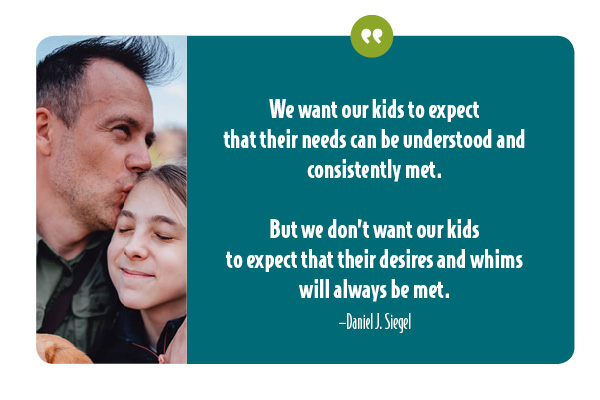No matter how long ago it was, you probably remember what it was like to be a teenager: feeling alienated from the world as if no one could understand you. A common and familiar theme.
When you’re a teen, the inner critic, negative self-talk, and anxiety can spiral out of control unless you know the right coping skills, how to regulate emotions, and develop intrinsic motivation.
Estimated reading time: 4.5 minutes

3 Critical Skills for Teens
When you’re the parent of a teen, it can be challenging to access the mindset needed to relate to the struggles of adolescence. This can create a rift between you and your children as they enter their teen years. It is critical to have empathy while also retaining your parental influence and boundaries.
As a parent, there are three crucial skills to teach and model for your teen that will help you better relate to each other and eliminate power struggles and teenage rebellion.
Teens need to develop confidence, emotional intelligence, and intrinsic motivation to grow into successful, well-adjusted young adults. The following three skills will help your teen to do just that. Spend time teaching your teen these skills to assist them in navigating their teenage years with minimal family conflict. These emotional fitness skills are also vital to help your teen limit screen time and the sometimes overwhelming information on social media.
SKILL #1 - Positive and Encouraging Self-Talk
The average human has 60,000 thoughts per day — and of them, some believe that approximately 80% are negative. Negative thoughts are a driving factor behind anxiety, depression, and suicide, which are affecting teens at increasing and alarming rates.
One reason why negative self-talk is so detrimental is that it can feel true. Teaching teens to reality-test their thoughts, or evaluate the evidence for and against their thoughts, can put negative self-talk back into perspective.
Helping your teen to develop positive and encouraging self-talk sets them up to become confident and resilient adults. Positive self-talk may seem like a pop-culture magic trick, but it is an essential coping skill that, when practiced, can help teens handle any setback that comes their way.
Shifting self-talk may sound like a simple concept, but it’s not easy to do. However, the effort is worth it! The process of mastering our inner dialogue creates tremendous self-awareness and is the foundation for emotional regulation.
As a parent, you play an important role in nurturing your teen at home. One of the most important ways to encourage positive self-talk is to model it by being mindful of the comments you make about yourself in front of them. Kids who grow up hearing their parents say deprecating comments like “I’m so fat” or “What a stupid thing to do” may go on to develop similar thought patterns as adults.
Children’s self-talk sprouts from their parents’ behaviors, perspectives, and beliefs, so by challenging your own negative self-talk, you can instill a positive model for your teens. Parents have an incredible opportunity to instill EQ skills.
Related reading: "7 Ways to Address Your Child's Negative Self-Talk."
SKILL #2 - Intrinsic Motivation
The demands placed on modern teenagers are loftier than ever before. Due to COVID-19, teens have to deal with isolation and the added stress of being denied key milestones like homecoming night or prom — not to mention they still have to navigate the usual stressors of homework, extracurricular activities, and college applications.
Teens need to develop a sense of what motivates them, so they don’t lose sight of what they are working toward during tough times. But while extrinsic motivational factors, such as compliments from parents or awards at school, can be helpful, the most important thing you can do for your teen is to nurture intrinsic motivation—or motivation that comes from within.
As parents, it’s easy to unintentionally or unknowingly sabotage our child’s intrinsic motivation. When we swoop in to eliminate obstacles from our child’s life and protect them from disappointment, we deny children natural opportunities to practice handling life’s letdowns, to self-calm their frustration, and to build resiliency.
 The teen years are an extraordinarily formative time for your son or daughter to develop a sense of intrinsic motivation. It’s a time when they begin to discover their deeper passions, but it’s also a time when they are incredibly vulnerable to their parents’ opinions.
The teen years are an extraordinarily formative time for your son or daughter to develop a sense of intrinsic motivation. It’s a time when they begin to discover their deeper passions, but it’s also a time when they are incredibly vulnerable to their parents’ opinions.
Hence, it’s crucial to have conversations about your teen’s feelings about school, friends, or themselves, not just your expectations for them as a parent. Avoid trying to convince them of your way. Instead, get curious and ask questions. Let them learn from their mistakes.
Being a helicopter parent can rob them of their intrinsic motivation. Instead, trust that you’ve taught your teen well and that they’re capable of making good choices without your interference. Yet, don’t be naïve either. The best solution to provide safety is by building strong communication and a loving relationship with your teen.
Related reading: "Redirecting Teen Defiance into Healthy Self-Esteem."

SKILL #3 - Conflict Resolution
Changing hormones, complicated social dynamics, and increased academic pressures during the teen years can mean that your once meek and mild-tempered son or daughter might suddenly become angry, disrespectful, or overly sensitive to even the smallest things. Parents are often confused by this change in behavior, which can lead to conflict if neither the parent nor the teen knows how to navigate the changing landscape of the teen’s emotions.
To teach our teenagers to resolve conflict with emotional maturity, it’s critical that we, once again, serve as a model of mature and loving behavior. By improving our own conflict resolution skills, we can impart a positive example to our teens, offering them the tools they need to develop their emotional intelligence as emerging young adults.
When modeling conflict resolution for our teens, we need to suspend judgment of our own feelings and our teen’s feelings. Focus on listening and empathizing rather than reacting.
By having an open, judgment-free conversation with your teen about how they are feeling, you’re teaching your child how to communicate calmly and effectively about their emotions in the safe atmosphere of the home environment. As a result, your teen will be better equipped to handle real-world conflict with emotional maturity.
A great thing to keep top of mind is that all conflict is an opportunity for connection, understanding, and closeness.
Related reading: “How to Build Healthy Emotional Development in Children”
 Part of listening to our children means restraining our own knee-jerk emotional reactions and instead focusing on mirroring our teen’s feelings back to them. Instead of responding from a place guided by our own emotional response, our goal is to help them feel heard and validated.
Part of listening to our children means restraining our own knee-jerk emotional reactions and instead focusing on mirroring our teen’s feelings back to them. Instead of responding from a place guided by our own emotional response, our goal is to help them feel heard and validated.
If you’re sensing that your child feels hurt or angry, merely saying, “It sounds like you feel hurt and angry,” can make a world of difference in helping your teen feel understood. He or she might roll their eyes but that doesn’t mean they don’t appreciate you tuning into their concerns. Years later, as they look back at these moments, they will remember your empathetic responses and how it felt to be validated. This understanding is what it means to resolve conflict in an emotionally intelligent way.
Don’t Be Afraid to Ask for Help
Teaching our teens emotional intelligence skills and modeling effectively for our children helps them grow into fully-fledged adults capable of handling setbacks and conflict with confidence and maturity.
But it’s not always easy to do!
If you need support or want to up-level your parenting toolbox, contact Heartmanity at support@heartmanity.com. Let us give you personalized support as you and your family navigate the teen years.









